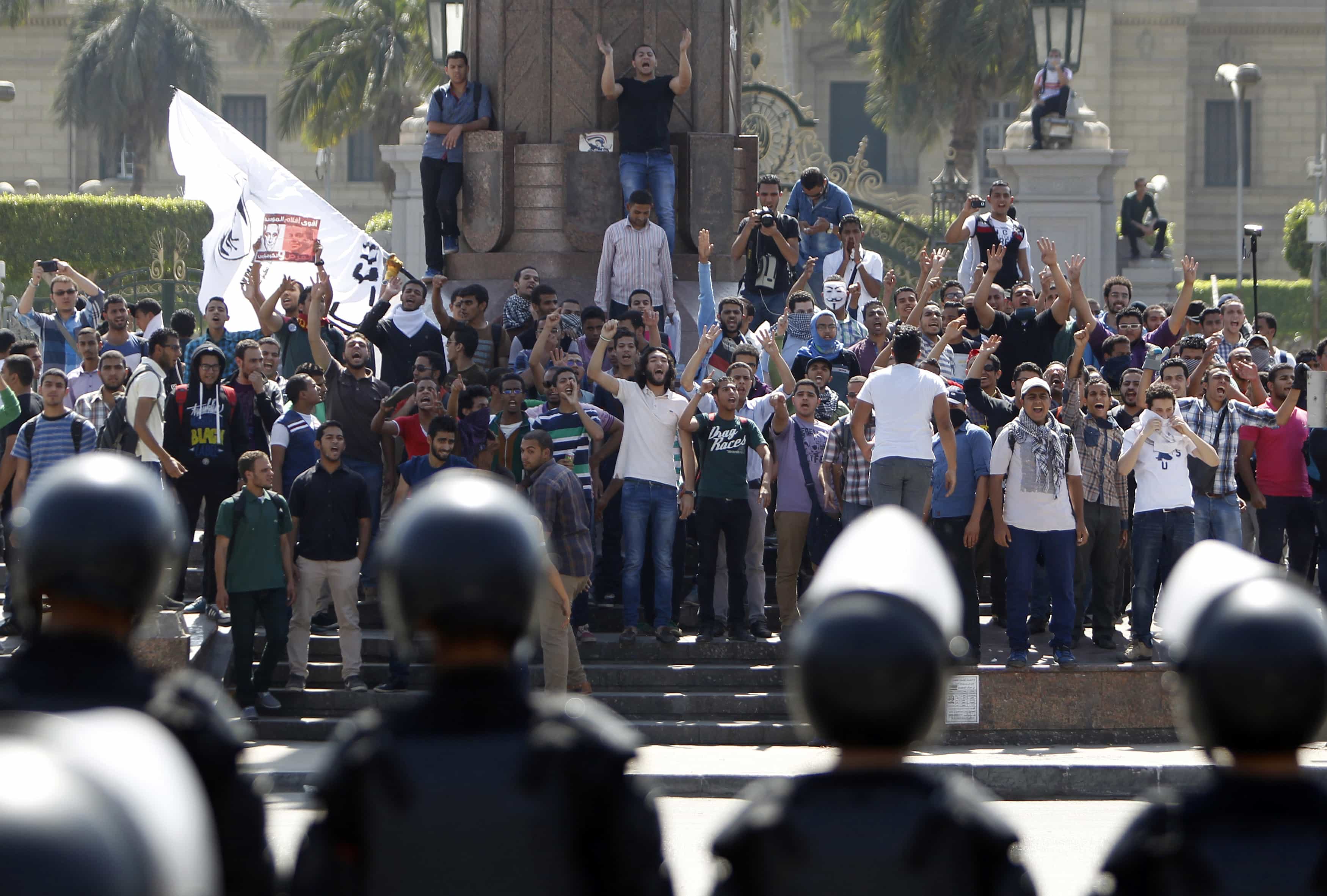With 21 extrajudicial killings reported in the last three years, Egypt's student movement needs the world's spotlight more than ever.
In collaboration with the Norwegian Students’ and Academics’ International Assistance Fund (SAIH), the Egypt-based Association for Freedom of Thought and Expression released a report entitled “Besieged Universities” on 21 March 2017. It documents and analyzes violations against the rights and freedoms of students in Egyptian universities post-2013. Below, we have published an excerpt. To read the full report, click here.
Since the successful military coup on July 3rd 2013, which overthrew President Mohamed Morsi, there has been an explicit orientation towards a restoration of the security grip on Egyptian universities.
The state has continued its attempts to restore the status of universities prior to the January Uprising in 2011 that overthrew former President Hosni Mubarak. This report analyzes the nature and context of the human rights violations against the academic community, and specifically students, in the period from the academic years 2013/2014 to 2015/2016.
During the past three years, we have witnessed the rise and fall of the Egyptian student movement. Within this reporting period, the state has participated in acts and threats of violence or coercion, such as arresting hundreds of students and killed dozens of others. In the academic year 2013/2014 alone, we witnessed an increase of violations against students and caused huge setbacks in terms of institutional autonomy for universities in Egypt.
This report is written at a time when the security grip on political activity in Egypt is at a peak. This tight grip has affected both higher education communities and human rights organizations that provide necessary support to students and academics among other groups against state violations. This report is part of a wider effort by many Egyptian activists and human rights defenders to accurately document this current phase in Egyptian history, despite the many harassments and restrictions they face. The situation for students and academics should be understood within a wider context of a shrinking space for civil society in Egypt.
Research and documentation, and the dissemination of objective data, are important to challenge the current regime on its human rights record and in the long term improve the situation. It is also important to the publishers of this report to disseminate information about the harsh reality student activists’ face in their everyday life in Egypt.
The report verifies and documents 1181 cases of student arrests inside or in the vicinity of universities during the past three academic years: 1051 disciplinary sanctions against students, where more than half of these were cases of expulsion; 65 cases of student referrals to military trials; and 21 extrajudicial killings. In 2015/2016 there was a decline in the number of cases of violations.
However, this does not necessarily reflect a change in state policies towards student activism. On the contrary, it might reflect the unfortunate success of the many security, legislative, and administrative violations, which has threatened and curbed the movement. The success of independent and opposition student leaders in the recent 2016 student elections, amidst an atmosphere of extremity and state intransigence, reflects an unexpected achievement by student leaders who took it upon themselves to utilize the little space for endogenous university activism.
This move to look inwards came after the state had obliterated the public sphere and limited political participation. This can be seen as a significant moment for the independent Egyptian student union, one that needs support and solidarity from local and international actors.



